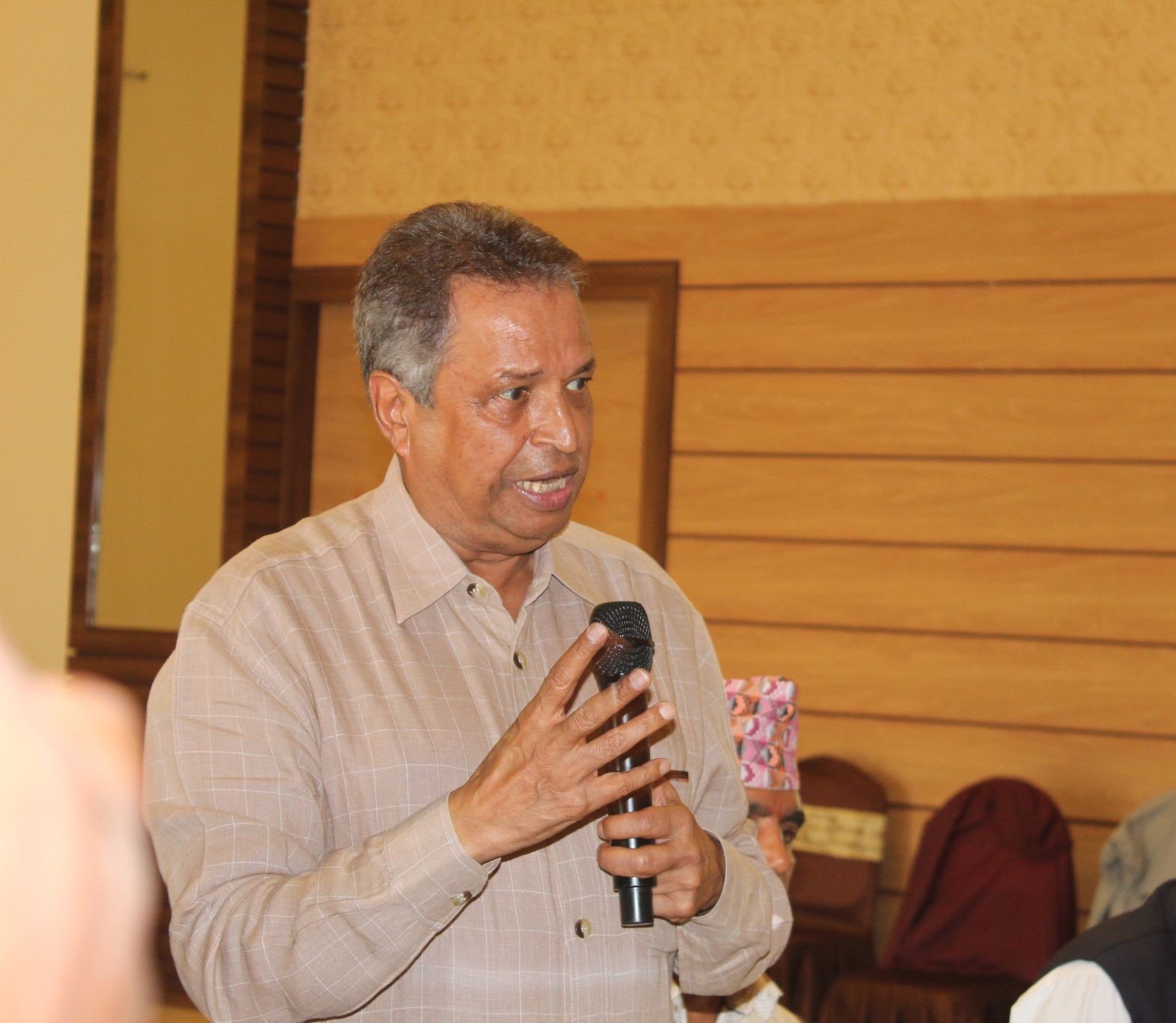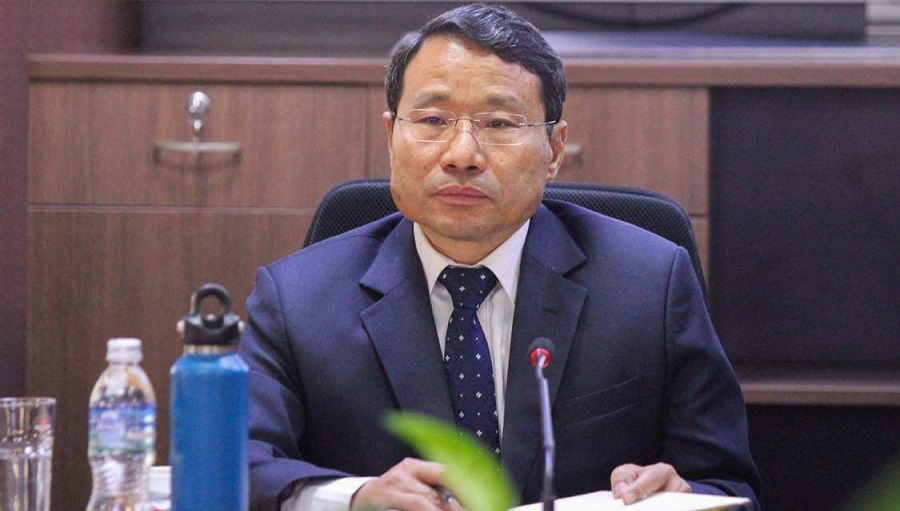
Lawmakers refuse to limit the IPO issue to 90 percent net worth.
According to the MPs, businesses with a net value of less than 90% shouldn't be prohibited from doing initial public offerings (IPOs). The majority of MPs present at the finance committee meeting on Sunday agreed that the Nepal Securities Board should not impose any restrictions on the IPO issuance because current securities rules and regulations do not set a cap on the net value of the company.
The company's net worth, also known as book value, is the total of its paid-up capital and all reserves. The company's net worth per share, or the book value of the shares, is calculated by dividing the entire net worth by the total number of shares in the company.
Members of the finance committee on Sunday expressed disappointment to the capital market and investors over the prohibition on initial public offerings (IPOs) for businesses with less than 90% of their total net value.
This topic was formerly covered by the Public Accounts Committee. The Nepal Securities Board was given instructions by the Audit Committee in December of last year to arrange the issuance of primary shares (IPO) exclusively to enterprises that have a net worth above 90 rupees per share.
The lawmakers also questioned the committee's purview, arguing that it is extremely delicate to bring up a topic that was previously addressed and decided in the Public Accounts Committee in the Finance Committee.
Bhagwati Chaudhary, a member of parliament, stated that only businesses with a net worth of less than 90% should be permitted to issue shares since doing otherwise would have an impact on the national economy.
"There is a chance of recovery even in the case of a decline of 65 percent," Chaudhary stated. After the IPO is released, the net value might potentially drop by more than 90%.
Chaudhary asserted that there is no other system like it in the world and urged witnesses to present proof if there is. What international and national policies prohibit companies with less than 90% net value from issuing an initial public offering (IPO)? "Which policy has proven that it is okay to have such a net worth?" queries Chowdhury.
Parliamentary committees shouldn't make decisions that have an impact on the capital market, according to MP Vinod Chaudhary. Chaudhary asserts that the Public Accounts Committee ought to have held a discussion before deciding not to grant initial public offerings (IPOs) to businesses with a net worth of less than 90 rupees.

"Able companies have not entered the market. There are companies that are not in operation and are coming for an IPO. How can the net worth of those companies be more than 90?" he asked. We need to consider the big picture. If good enterprises have not entered the market as a result of laws and regulations, then we shouldn't decide to influence the market.
He said the board had to have the authority to allow the securities market to remain open. The market is not always the same, according to Chaudhary. He asserted that capital raising should not be discontinued.
In a similar vein, MP Ganga Karki questioned the Public Accounts Committee's and the Finance Committee's purview. He declared that the topic should not be discussed because it falls under the purview of the Finance Committee.
A choice has already been made. The choice made there is currently being discussed here. "First, it should be determined whose jurisdiction it is," he stated. Let's put this problem to rest and move the discussion along. This was the case that the Accounts Committee was investigating. Since June is observing, it is best to do so.
Additionally, he stated that as there is no legal framework for issuing an IPO, businesses with a net value of less than 90% shouldn't be put into operation.
In the Securities Board, there is some debate. We'll find out if there was disagreement inside the accounting committee. In actuality, limiting a company's participation to less than 90% is not a good idea, according to Karki. The only way we should move forward is by being aware of the current laws and regulations.
He claimed that the uneven nature of the securities industry is also a result of the lack of laws and regulations. In that instance, Karki believes that it is necessary to first clarify the legal issue.

Barshman Pun, a member of parliament, stated that the Securities Board situation is now delicate. Pun claims that even though the audit committee's purview does not include the board, the topic was brought up because the committee had received a complaint against the board.
There were rumors at the time that the stock market was being somewhat more manipulated. He claimed that the audit committee had received and considered a great deal of concerns. Given that the accounting committee has already taken the judgment, the chairmans of the opposing parties ought to work together to clarify it at the upcoming meeting.
Pun stated that following the Audit Committee's discussion, he gave the order to complete the required preparations in response to a complaint that there had been additional manipulation during the IPO's issuance.
"After the state has trusted the regulatory body, it is the duty of the board to protect the investment of about six million investors," Pun stated. Pun claims that there won't be any issues if the book-building procedure is prioritized above the share issuance process.
"Stopping cancellations by amending the regulations following pre-evaluation is one of the provisions when issuing main shares. Pun responded, "Let the board take note of that. "There have also been defeats. Where do the businesses who are losing money obtain it from? It is accurate that the audit committee brought up this concern.
Pun stated that it is inappropriate for the committee to move forward with this issue and that enterprises with less than 90% net worth shouldn't issue shares under the law.
In doing so, it appeared as though interest groups had influence. Interest groups are not the committee's target audience. Pun stated, "Work within the legal framework. The committee cannot decide whether or not to issue its shares."
In addition, he stated that the Ministry of Finance had to choose a chairman as quickly as possible, given that there isn't one on the board.
Past directives and present decisions indicate that interest groups are manipulating the system, and the committee ought to rise above that.
According to MP Padam Giri, the Finance Committee has jurisdiction over the Securities Board. According to Giri, the directives have been issued appropriately because the Finance Committee addresses policy issues and the Accounts Committee investigates anomalies.
Instructions have already been issued by a committee. That command needed to be discussed. Giri stated, "It is a contentious matter that needs to be addressed by another committee because it is extremely sensitive in and of itself and one committee has issued instructions on it."
According to him, investors become perplexed when initial public offerings (IPOs) are conducted by raising the prices of reevaluated enterprises through regulatory revisions. He stated that it was not required to publish the revised rules in the gazette while they were being revised.
The Securities Board's Acting Chairman, Mahesh Baral, declared that the long-stalled IPO issue clearance procedure will finally move forward. He announced that the IPO filings of companies awaiting IPO issuance will now be sent. He stated that for businesses with a net worth under ninety, the best course of action is to wait and see.
He said that it was sent for approval after a review of the companies' financial standing. According to Baral, the board will make a decision only after conducting additional research and looking at businesses that are in poor financial standing.
Santosh Chalise, the committee chairman, stated that the Securities Board is under the purview of the Finance Committee as per the House of Representatives' 2079 regulations book.
Furthermore, he stated that he would only call for a second meeting after consulting with the Audit Committee Chairman.
"Discussions lack preparation." "We will take some time to discuss in detail with the Chairman of the Public Accounts Committee and hold another meeting," Chairman Chalise remarked, adding that I also had a lot to learn.






